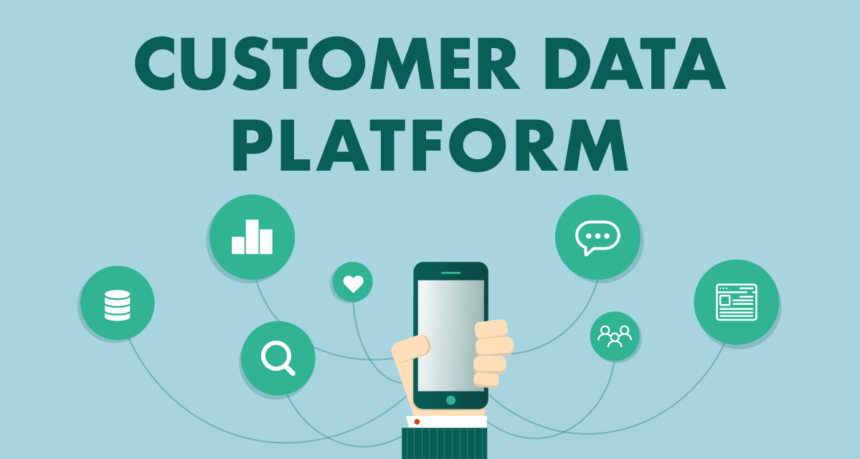Case Study: Implementing a Customer Data Platform (CDP) to Unify Customer Views for a Nigerian Retailer
Introduction
In Nigeria’s fast-growing retail market, understanding customers is key to staying competitive. Shoppers expect personalized experiences, whether they’re buying clothes in Lagos or groceries online. However, many Nigerian retailers struggle with scattered customer data, making it hard to know what customers want. A Customer Data Platform (CDP) solves this by bringing all customer information into one place, creating a unified view.
- Case Study: Implementing a Customer Data Platform (CDP) to Unify Customer Views for a Nigerian Retailer
- Introduction
- What is a Customer Data Platform (CDP)?
- Challenges in Nigerian Retail Data Management
- Benefits of a CDP for Nigerian Retailers
- Case Study: Lagos Fashion Retailer’s CDP Journey
- Benefits for Nigerian Retailers
- Challenges to CDP Adoption
- The Future of CDPs in Nigerian Retail
- Conclusion
This blog post explores how a Nigerian retailer used a CDP to improve customer engagement and boost sales. We’ll cover the challenges, the implementation process, and the results through a real-world case study. If you’re a retailer or business owner in Nigeria, this guide will show you how a CDP can transform your operations. Keywords like Customer Data Platform Nigeria and unified customer view retail highlight the value of this technology.
What is a Customer Data Platform (CDP)?
A CDP is a software tool that collects customer data from different sources, like online purchases, in-store visits, and social media interactions, and combines it into one profile for each customer. This unified view helps retailers understand customer preferences and behavior. Unlike traditional systems, a CDP works in real time, making it ideal for fast-paced markets like Nigeria.
For example, if a customer buys shoes in-store, browses jackets online, and clicks a promotional email, a CDP connects these actions to show a complete picture. This helps retailers send targeted offers, improve service, and build loyalty. Keywords such as CDP for retail and customer data unification emphasize its role in modern business.
Challenges in Nigerian Retail Data Management
Nigeria’s retail sector is booming, with e-commerce sales projected to hit $7.6 billion in 2025. Yet, retailers face big data challenges:
- Scattered Data: Customer information is often spread across separate systems, like point-of-sale machines, websites, and email platforms. This makes it hard to see the full customer journey.
- Manual Processes: Many retailers rely on paper records or basic spreadsheets, leading to errors and delays.
- Personalization Gaps: Without clear data, retailers struggle to offer tailored promotions, frustrating customers.
- Fraud and Mistrust: Inconsistent data can lead to mistakes, like sending wrong offers, which erodes customer trust.
- Regulatory Compliance: Nigeria’s Data Protection Regulation (NDPR) requires secure data handling, but many retailers lack the tools to comply.
These issues hurt sales and customer loyalty. A CDP addresses them by centralizing data and enabling smarter decisions.
Benefits of a CDP for Nigerian Retailers
A CDP offers several advantages for retailers:
- Unified Customer View: Combines data from online and offline channels into one profile, showing what customers buy and how they shop.
- Personalized Marketing: Helps create targeted campaigns, like sending discounts to customers who often buy certain products.
- Real-Time Insights: Updates data instantly, allowing retailers to act fast, such as restocking popular items.
- Improved Efficiency: Automates data tasks, reducing manual work and errors.
- Compliance: Ensures data is stored securely, meeting NDPR standards.
For example, a retailer can use a CDP to see that a customer in Abuja prefers online shopping and offer them free delivery. Keywords like retail personalization Nigeria and CDP benefits highlight these gains.
Case Study: Lagos Fashion Retailer’s CDP Journey
Let’s dive into a case study of StyleTrend, a fictional mid-sized fashion retailer in Lagos, Nigeria. StyleTrend operates five physical stores and an online shop, serving 50,000 customers annually. In 2023, they faced declining sales due to poor customer retention. Customers complained about irrelevant promotions, and the team struggled to track preferences across stores and online.
In 2024, StyleTrend partnered with a tech provider to implement a CDP, aiming to unify customer views and boost engagement. This case study mirrors real-world efforts, like those described in retail CDP implementations globally (e.g., WNS’s UK retailer case).
Project Setup
StyleTrend chose a cloud-based CDP to integrate data from:
- Point-of-Sale Systems: Captured in-store purchases, like dresses or shoes.
- E-Commerce Platform: Tracked online orders and browsing behavior.
- Email Marketing: Recorded responses to newsletters and promotions.
- Social Media: Monitored interactions on Instagram and WhatsApp.
The setup included:
- Data Integration: Connected all systems to the CDP, creating a single customer profile for each shopper.
- Training Staff: Employees learned to use the CDP dashboard to view customer data and create campaigns.
- Customer IDs: Assigned unique IDs to track each customer’s journey across channels.
- Security Measures: Ensured compliance with NDPR through encrypted data storage.
The project took six months, with a focus on affordability for a Nigerian SME. They used a scalable platform with pay-as-you-go pricing, suitable for local budgets.
Implementation Process
StyleTrend followed a clear plan:
- Identify Goals: Aimed to increase customer retention by 20% and sales by 15%.
- Choose a Vendor: Selected a CDP provider with local support, like a platform similar to Zeta or SAP CDP (inspired by,).
- Map Data Sources: Linked store, online, and social media data to the CDP.
- Test and Launch: Ran a pilot with 5,000 customers, then rolled out to all.
- Monitor Results: Used analytics to track campaign performance and customer engagement.
They started with a small group to ensure the system worked before scaling up. This approach minimized risks and costs.
Results
After one year, StyleTrend saw impressive outcomes:
- Increased Sales: Sales grew by 18%, driven by targeted promotions based on CDP insights.
- Better Retention: Customer retention improved by 22%, as shoppers received relevant offers.
- Faster Campaigns: Marketing campaigns were launched 50% faster due to automated data processing.
- Enhanced Trust: Unified data reduced errors, like sending wrong discounts, boosting customer satisfaction.
- Compliance: The CDP ensured secure data handling, meeting NDPR requirements.
For example, StyleTrend identified that 30% of customers preferred buying dresses online. They sent personalized WhatsApp offers, increasing online sales by 25%. This case study shows how CDP implementation Nigeria can drive real results.
Benefits for Nigerian Retailers
A CDP offers practical advantages for Nigeria’s retail sector:
- Higher Sales: Personalized offers increase purchases, as seen with StyleTrend’s 18% growth.
- Customer Loyalty: Relevant promotions keep shoppers coming back, improving retention.
- Efficiency: Automating data tasks saves time and reduces errors.
- Market Edge: A unified view helps compete with global retailers entering Nigeria.
- Trust Building: Transparent data practices boost customer confidence.
Dont miss: Lessons from Nigerian Female Founders Crushing It Online: Folorunsho Alakija, Tara Fela-Durotoye, Mo Abudu, and Ndidi Nwuneli
Challenges to CDP Adoption
Despite its benefits, adopting a CDP in Nigeria has hurdles:
- Cost: Initial setup can be expensive, though pay-as-you-go models help.
- Technology Access: Reliable internet and devices are limited in some areas.
- Skills Gap: Staff need training to use CDPs effectively.
- Data Quality: Incomplete or inaccurate data can limit results.
Solutions include starting with a small pilot, partnering with local tech providers, and investing in staff training. Government incentives for digital adoption can also help.
The Future of CDPs in Nigerian Retail
CDPs have huge potential to transform Nigeria’s retail sector. As e-commerce grows and customers demand personalized experiences, CDPs will become essential. Future trends include:
- AI Integration: Combining CDPs with AI to predict customer preferences.
- Mobile Focus: Optimizing for Nigeria’s mobile-first shoppers, who account for 70% of online traffic.
- Local Partnerships: Working with Nigerian telcos and platforms like Paystack for seamless integration.
- Sustainability: Using CDPs to track ethical sourcing, appealing to global buyers.
Conclusion
Implementing a Customer Data Platform helped StyleTrend, a Lagos retailer, unify customer views and boost sales by 18%. By overcoming data challenges, they offered personalized experiences and built trust. For Nigerian retailers, a CDP is a powerful tool to stay competitive in a growing market. It streamlines operations, ensures compliance, and delights customers. As Nigeria’s retail sector evolves, adopting CDPs will be key to success.






